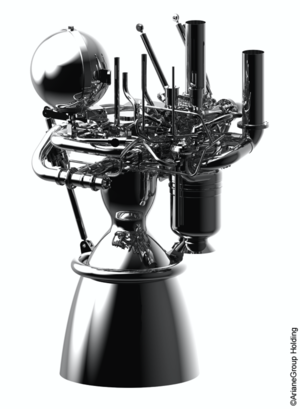Space-powered virtual clinic boosts remote healthcare
People with chronic illnesses are now able to manage their conditions from home thanks to a satellite-enabled interactive virtual clinic that has been successfully trialled by the NHS.
Called CliniTouch Vie, the platform uses telecommunications to connect patients to their medical teams via remote monitoring of some vital signs and video consultations, and provides useful local air quality information.
This provides advanced warning of when a person’s condition is likely to worsen, enabling clinical teams to deliver personalised advice and treatment while avoiding unnecessary visits to hospital.
The integration of air quality information empowers patients to adjust their day-to-day lives to better manage their illnesses, by avoiding walking in areas with traffic pollution or high pollen counts, for example.
CliniTouch Vie was developed by UK-based company Spirit Digital and piloted at the Leicester Partnership NHS Foundation Trust as part of a demonstration project supported by ESA and the UK Space Agency.
The system was created with the help of air quality modelling company EarthSense and the Satellite Applications Catapult.

Jane Van Aken, a registered community nurse and director of product development at Spirit Digital, said: “Accessible air quality information has the potential to make a real difference to how chronic lung conditions are managed from home. Developed with the support of ESA and the UK Space Agency, CliniTouch Vie connects people directly to their clinical teams – and empowers them to make day-to-day decisions to improve health and wellbeing.”
Originally designed for people suffering from chronic obstructive pulmonary disease, it can now be used to manage other conditions, including heart failure and COVID-19.
The tool was developed with input from both patients and clinicians.
Patients expressed a need for easily accessible air quality information that would enable them to continue their routines in a more healthy way, and reduce restrictions on their activities.
There is also an appetite among clinicians for air quality data from the patient’s locality – this could be used to better understand their conditions.

CliniTouch Vie uses mathematical modelling to merge data on traffic flow, air pollution, weather conditions and the patient’s location to provide a high-resolution picture of local air quality.
Patients who took part in the pilot reported they felt better able to self-manage their conditions; the use of the virtual clinic also resulted in fewer unnecessary hospital appointments, freeing up resources.
Sarah Hughes, clinical nurse specialist at Leicester Partnership NHS Foundation Trust, said: “Patients with chronic illnesses typically experience symptoms including breathlessness and fatigue, which can vary from day to day, often in response to air quality. Being aware of environmental factors informed the assessment process, enabling clinicians to better understand patients’ conditions and provide helpful advice, as well as reassurance to reduce anxiety.”
Emily Gravestock, head of applications strategy at the UK Space Agency said: “Every day, space technology is being used in new ways to make people’s lives better. I’m proud that our support is driving forward new advances in healthcare, making it easier for clinicians to intervene at the right time and giving patients more peace of mind.”
The project was supported by ESA Space Solutions, which supports European businesses in the development of space-enabled products and services that improve everyday life.
Arnaud Runge, ESA medical engineer and technical officer for the CliniTouch Vie project, said: “This project has obtained remarkable results. CliniTouch Vie is the first project to establish a clinical correlation between air pollution measured by satellites and patients’ conditions. It also confirmed that the health sector is definitely a place where space can help businesses develop while serving European citizens.”















 Germany
Germany
 Austria
Austria
 Belgium
Belgium
 Denmark
Denmark
 Spain
Spain
 Estonia
Estonia
 Finland
Finland
 France
France
 Greece
Greece
 Hungary
Hungary
 Ireland
Ireland
 Italy
Italy
 Luxembourg
Luxembourg
 Norway
Norway
 The Netherlands
The Netherlands
 Poland
Poland
 Portugal
Portugal
 Czechia
Czechia
 Romania
Romania
 United Kingdom
United Kingdom
 Slovenia
Slovenia
 Sweden
Sweden
 Switzerland
Switzerland


























